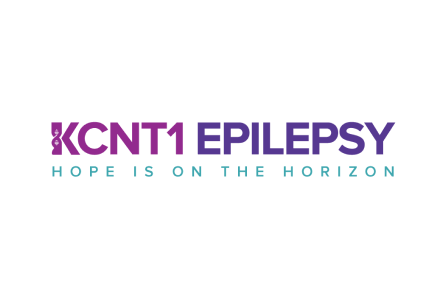KCNT1 Epilepsy Foundation
Cycle 3
KCNT1 is a channel that affects the flow of electricity in the brain and sometimes in the heart. This channel is found throughout the body, and mutations in KCNT1 result in increased electrical flow through the potassium channels. This primarily results in problems in electric electrical activity in the brain, which can cause seizures.
Last updated 04/30/2025
Clinical
Disease Class
Channelopathies
Body Systems
Nervous / Sensory
Organs
Arteries
Brain
Heart
Muscles
Nerves
Known Genetic Link
Yes, one or more genes directly cause the condition
causative_genes
KCNT1
contributory_genes
None specified / unknown
Type of Inheritance
Autosomal dominant
De novo
Newborn Screening
Yes, in some states
Disease Mechanism(s)
Abnormal channel conductance
Abnormal channel regulation
Altered channel kinetics
Ion channel dysfunction
Pathogenic mutation
Age of Onset
Early childhood (age 1+-5)
Infancy (age 0-1)
Middle childhood (6-11)
Prebirth
Average Age at Diagnosis
Early childhood (age 1+-5)
Infancy (age 0-1)
Life Expectancy
Early childhood (age 1+-5)
Affected Sex(es)
Female
Male
National Prevalence
101-1000
Global Prevalence
10000+
National Incidence
11-50
Global Incidence
51-100
Symptoms / Phenotypes
epileptic encephalopathy
seizures / epilepsy
Biomarkers
None
Existing Therapies
None
Organizational & Research
Cell Lines
Fibroblasts
iPSCs
Plasma
Cell Lines, Institution
Boston Children's Hospital
Northwestern University
Van Andel Institute
Cell Lines, Involvement
Funded
Own
Cell Lines, share
All our cell lines are freely available
Disease Model
Not specified / unknown
Disease Model, share
N/A
Clinical Trial Role
Data sharing
Focus group
Meeting with regulators
Other consulting
Outcome measures, development
Recruitment and outreach, patients
Study material design, review (not protocol)
Study protocol design, review
Biobank, Institution
Van Andel Institute
Biobank, Involvement
Funded
Center of Excellence, Institution
None
Registry
Yes, we have collaborated on a registry
Data Collected, Registry
Electronic health records/electronic medical records
Genetic data
Longitudinal natural history data
Medication usage
Patient contact info
Patient-reported data
Data Entered by, Registry
Patients
Platform, Registry
IAMRARE
Natural History Study
Yes, we have collaborated on a natural history study
Data Collected, Natural History Study
Electronic health records/electronic medical records
Genetic data
Medication usage
Patient-reported outcomes
Prospective data
Retrospective data
Platform, Natural History Study
IAMRARE
FDA Patient Listening Session
Yes
FDA Patient-Focused Drug Development (PFDD) Program
No
ICD Codes
We use an ICD-10 code capturing the family of diseases to which our disease belongs
We use an ICD-11 code capturing the family of diseases to which our disease belongs
Diagnostic Guidelines
No
Science Advisory Board Policies
Yes, willing to share SAB policies
Research Network Policies
Has CRN but no policies
Research Roadmap
We don't have a Research Roadmap
International Chapters
None
International Partners
None
